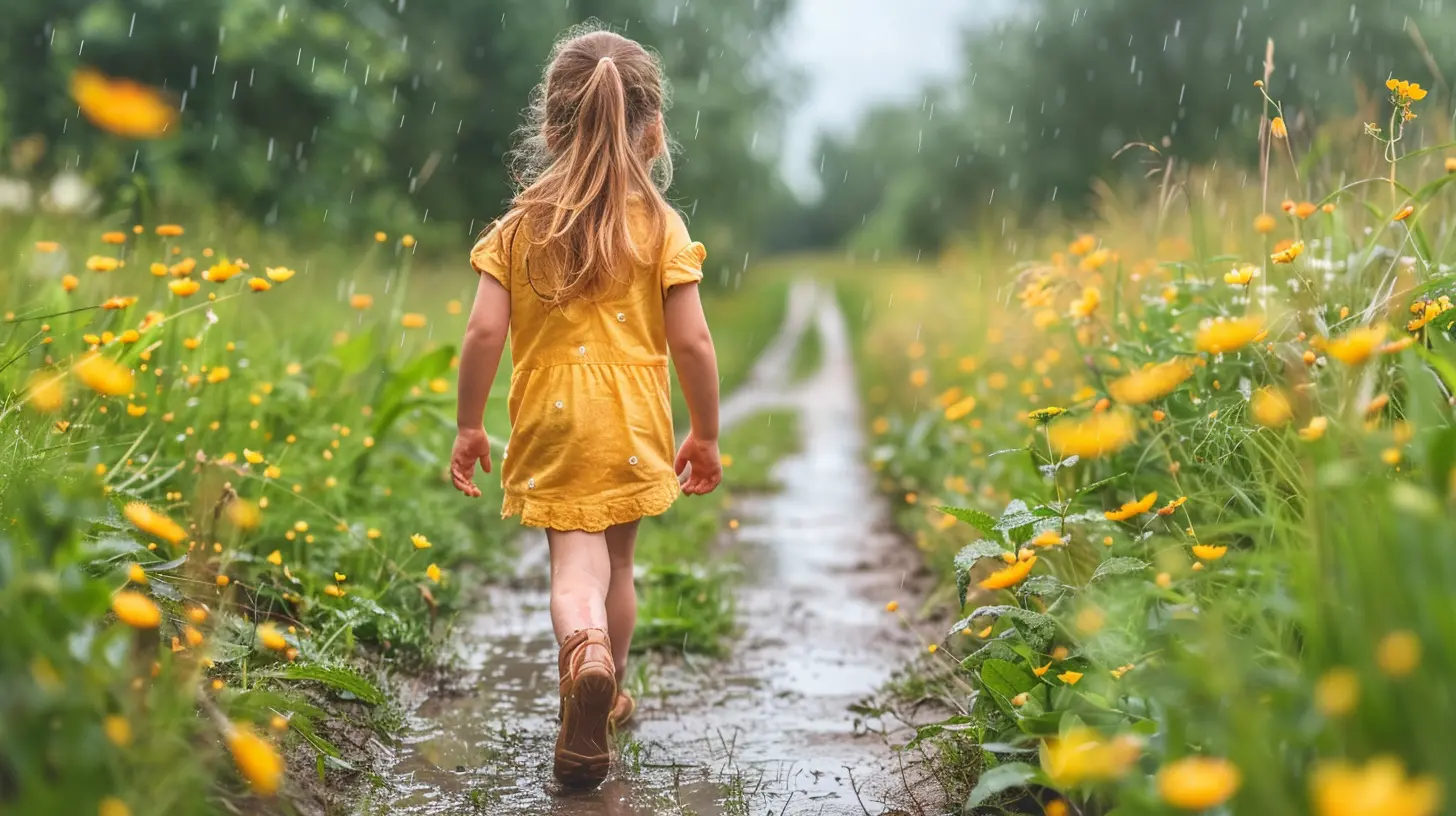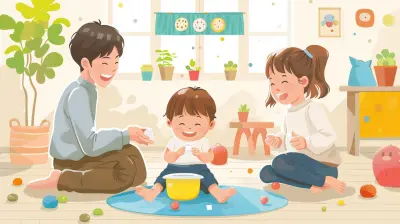Teaching Kids the Power of Positivity and Optimism
19 April 2025
As parents, we often find ourselves hoping that our children will grow up to be not only successful, but also happy and kind individuals. While there’s no one-size-fits-all approach to parenting, there is one thing that can make a massive difference in how they navigate life—instilling the power of positivity and optimism.
In a world that can sometimes feel overwhelming or negative, teaching kids to look at life through a positive lens can shape their experiences, choices, and relationships. But how do we go about teaching positivity and optimism? Is it even possible to raise naturally optimistic kids?
The answer is a resounding yes! But just like how they learn to tie their shoes or ride a bike, teaching kids the power of positivity takes time, patience, and practice. Let me walk you through practical ways to approach it.

What is Positivity and Optimism?
Before we dive into how to teach it, let's first define what we're teaching. Optimism is essentially having a hopeful outlook on life. It’s the belief that good things will happen, and even when faced with challenges, you can learn from the experience and move forward.Positivity goes hand-in-hand with optimism. It’s about focusing on good things, expressing gratitude, and being kind to ourselves and others. A positive mindset encourages resilience and helps kids bounce back from adversity.
Together, positivity and optimism are like superpowers for tackling life’s inevitable ups and downs. Pessimism, on the other hand, tends to see obstacles as permanent and pervasive, while optimism views them as temporary setbacks. And good news: optimism can be taught.

Why Is It Important to Teach Positivity and Optimism?
Optimistic individuals tend to live healthier, happier lives. And who wouldn’t want that for their kids? Let’s dig a little deeper into why it’s so important.1. Resilience in the Face of Challenges
Life is full of challenges—there’s no getting around that. But kids who are taught how to stay positive and look on the bright side will be better equipped to handle those challenges with resilience.Rather than giving up after facing a setback, optimistic kids are more likely to say, “Okay, how can I fix this?” They learn from mistakes instead of letting them define their worth. This isn’t about sugar-coating reality or pretending everything is always rosy. It’s about finding solutions and moving forward.
2. Better Mental Health
According to studies, positive thinking can lead to lower stress and anxiety levels. Optimistic people are less likely to experience depression, and they tend to have better mental health overall. Kids who can frame situations in a positive light feel more in control of their circumstances, which decreases feelings of helplessness and hopelessness.3. Improved Relationships
An optimistic attitude fosters better relationships. Kids who are positive tend to be more empathetic, compassionate, and solution-oriented in their friendships. Teaching optimism can help your children become better at resolving conflicts and communicating effectively, helping them build stronger, healthier connections with others.4. A Growth Mindset
When kids think positively, they're more likely to develop a growth mindset—the belief that abilities and intelligence can be developed with effort, time, and learning. This is pivotal for their success in academics, sports, and other areas of life. They don’t feel defeated by challenges; instead, they see them as opportunities to grow.
Practical Ways to Teach Positivity and Optimism to Kids
Now that we know why this is important, let’s get into the how. You don’t need to be a child psychologist to help your kids see the bright side of life; you just need a few practical strategies to weave positivity and optimism into your everyday life.1. Model It Yourself
Kids have a habit of mimicking the adults around them—sometimes even more than we realize. If you’re constantly expressing stress, negativity, or pessimism, guess what? They’ll likely model the same behavior.On the flip side, if you make a conscious effort to model positivity in your life, they’ll start to pick up on that as well. It’s about how you approach challenges, how you talk about your day, and how you react when something doesn’t go as planned.
When something doesn’t work out the way I hoped, instead of saying, "Ugh, this is horrible!", I try saying, "This is a challenge, but I know we can figure out a solution." Painting challenges as temporary hurdles can help your child form an optimistic worldview over time.
2. Teach Gratitude
Gratitude is the cornerstone of a positive life. Kids who are grateful tend to focus on what they have rather than what they lack, which naturally fosters a brighter outlook on life.Make gratitude a regular part of your family routine. Maybe it's something as simple as a nightly practice where everyone shares one thing they are grateful for. Or you can encourage your children to keep a gratitude journal where they list three things they're thankful for each day. Over time, this practice shifts the focus to the positive aspects of their lives.
3. Help Them Reframe Negative Thoughts
It’s natural for kids to have negative thoughts from time to time. But instead of simply brushing them aside, help your child reframe those thoughts. This doesn’t mean ignoring feelings of frustration or sadness but pivoting them towards a more helpful perspective.For example, instead of "I’m bad at math, and I’ll never get better," you could encourage them to think, "Math is hard, but with practice, I can improve." Reframing reminds kids that setbacks are not permanent and that effort can lead to progress.
4. Teach Problem-Solving Skills
Optimistic people don’t just sit back and hope for good things to happen. They actively work on finding solutions to challenges. Teach your child problem-solving skills by breaking down issues into manageable parts and discussing possible solutions with them.Encourage them to brainstorm solutions to small problems. For instance, if they spill their drink, instead of crying or getting upset, guide them to think, "Oops! How can I clean this up?" Over time, they’ll learn that they have the power to navigate difficulties.
5. Encourage a Growth Mindset
There are two ways to approach life: with a fixed mindset or a growth mindset. Kids with a fixed mindset believe talent, intelligence, and abilities are set in stone—you either “have it” or you don’t. Kids with a growth mindset know that effort and perseverance lead to improvement.Whenever possible, praise effort, not just results. For example, instead of saying, "You’re such a good artist," say, "I love how much effort you put into practicing that drawing—look at how much you’ve improved!" This reinforces the idea that their abilities grow with hard work and persistence.
6. Limit Exposure to Negativity
While we can't shield our kids from all the negativity in the world, we can be mindful of how much they're exposed to it. This includes everything from limiting screen time filled with negative content to setting a healthy emotional tone at home.Encourage constructive conversations around difficult topics, and be mindful of how you frame current events or challenges in your own life. Instead of dwelling on the negative, offer a balanced perspective paired with hope.
7. Create a Positive Environment
Your home environment plays a huge role in your child’s attitude and mindset. Make your home a place of encouragement, love, and positivity. Celebrate successes, no matter how small, and approach mistakes as learning opportunities.Surround them with positive role models—whether that’s through books, stories, or real-life interactions. Create an atmosphere where kindness, patience, and optimism are valued.
8. Instill Acts of Kindness
One of the most powerful ways to teach positivity is to encourage your kids to help those around them. Small acts of kindness, like helping a sibling with their homework or volunteering to clean up after dinner, can foster a deep sense of fulfillment and positivity.When we help others, we feel good about ourselves, and that sense of well-being can profoundly impact our outlook on life. Encourage your kids to engage in random acts of kindness and express gratitude when they do.

The Long-Term Impact of Teaching Positivity
You might be wondering—will teaching my kids to be more positive and optimistic really make a difference? The answer is yes, and the ripple effects can last a lifetime.Kids who are optimistic tend to perform better academically, have higher self-esteem, and are more likely to maintain healthy relationships. As they grow older, they become adults who approach life with a can-do attitude, aren’t afraid to take risks, and navigate stressful situations with resilience.
You’re not just teaching them how to be happy in the moment. You’re giving them tools to thrive in life and overcome inevitable challenges with grace and determination.
Conclusion
Teaching kids the power of positivity and optimism is a gift that keeps on giving. While it may take patience and persistence, the long-term benefits for your children’s emotional and mental well-being are immeasurable.By modeling a positive attitude yourself, encouraging gratitude, and teaching them how to reframe negative experiences, you'll empower your kids to navigate the world in a healthier, more optimistic way. Remember, positivity is a skill that can be cultivated, and by practicing it regularly, you're setting your child up for a lifetime of resilience, happiness, and fulfillment.
all images in this post were generated using AI tools
Category:
Life Skills For KidsAuthor:

Maya Underwood
Discussion
rate this article
4 comments
Bernadette Stevens
Like teaching a cat to fetch, instilling positivity takes patience! Let’s sprinkle optimism like confetti and watch our kids shine!" 🎉✨
May 11, 2025 at 4:11 PM

Maya Underwood
Absolutely! Patience is key, and with consistent encouragement, our kids can truly thrive. Let's keep spreading that positivity! 🌟
Hugo Bishop
In a world where shadows often creep, Plant seeds of joy for hearts to keep. Guide their gaze to sunshine's glow, In laughter's dance, let hope freely flow. With every word, let kindness rise, For in optimism, true strength lies. Nurture dreams that touch the skies.
April 25, 2025 at 3:53 PM

Maya Underwood
Thank you for beautifully capturing the essence of fostering positivity in children! Your poetic words truly inspire us to nurture joy and kindness in their hearts.
Amalia Rios
Absolutely loved this article! Instilling positivity in our kids is such a gift. It’s amazing how a simple shift in perspective can change their day. Here’s to raising a generation of hopeful, optimistic little humans! 🌟
April 20, 2025 at 4:14 AM

Maya Underwood
Thank you so much! I completely agree—small shifts can make a big difference in nurturing positivity in our kids. Here’s to cultivating that optimism together! 🌈
Runehart McIntire
Thank you for sharing these valuable insights! Teaching kids positivity is essential for their emotional growth and resilience. Great read!
April 19, 2025 at 2:28 PM

Maya Underwood
Thank you for your kind words! I'm glad you found the insights valuable for fostering positivity in kids.



